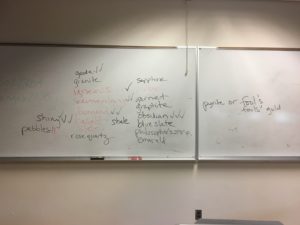“The Futurafrique glitters…the Momolu Bukere Black-Hound winging along the seven-lane Equatorial Highway toward Khopirû”(610). While reading M.B. Tolson’s Libretto for the Republic of Liberia I was intrigued and more than a little confused by Tolson’s allusions and vocabulary. The above quotation in particular confused me, although initially, my interest was sparked simply by my curiosity about the meaning of the word “Khopirû”. I discovered in the poem appendix that Khopirû means “To Be”. I learned further that Khopirû is linked with a concept known as; the “Eternity of Thence”. The “Eternity of Thence” is in my understanding, an existential idea that involves individuals living their lives not concentrated on the future, instead concentrating on the current moment–all of which aids one in living “the good life”. I was a little confused as to what this word, and by extension concept, was doing in this particular poem. What is its relevance? What does it have to do with Liberia and “Futurafrique”? Upon further thought I believe that the word in this circumstance is being used to alluded to what Tolson believes to be the improved future of Liberia. He wants Liberia and possibly all of the above mentioned “Equatorial Highway” to go forth with this idea of just “being” as countries. Perhaps he wants Liberia to learn from this philosophy? I am not sure and would like to dissect further in future conversations, classes and writings.

